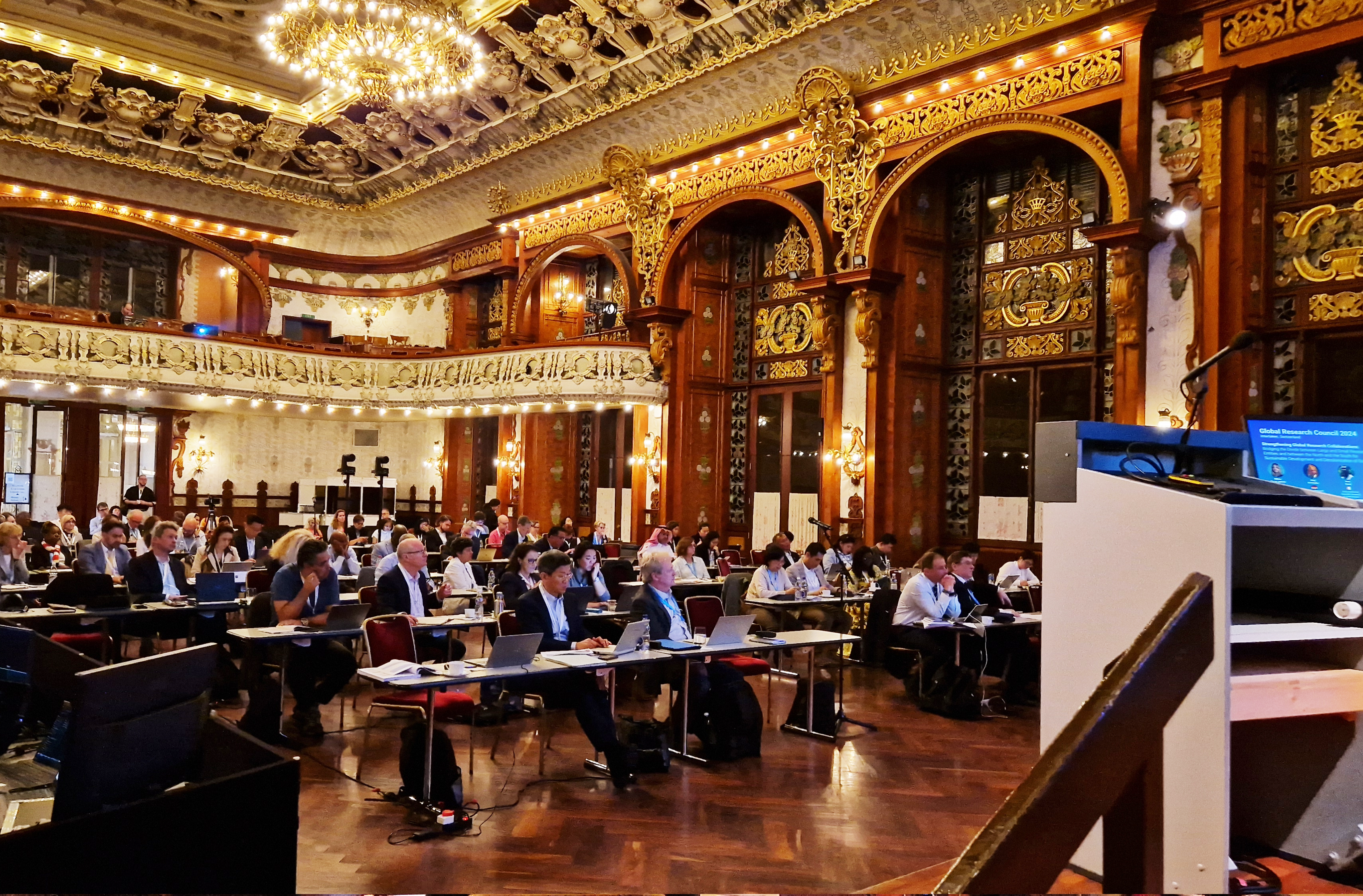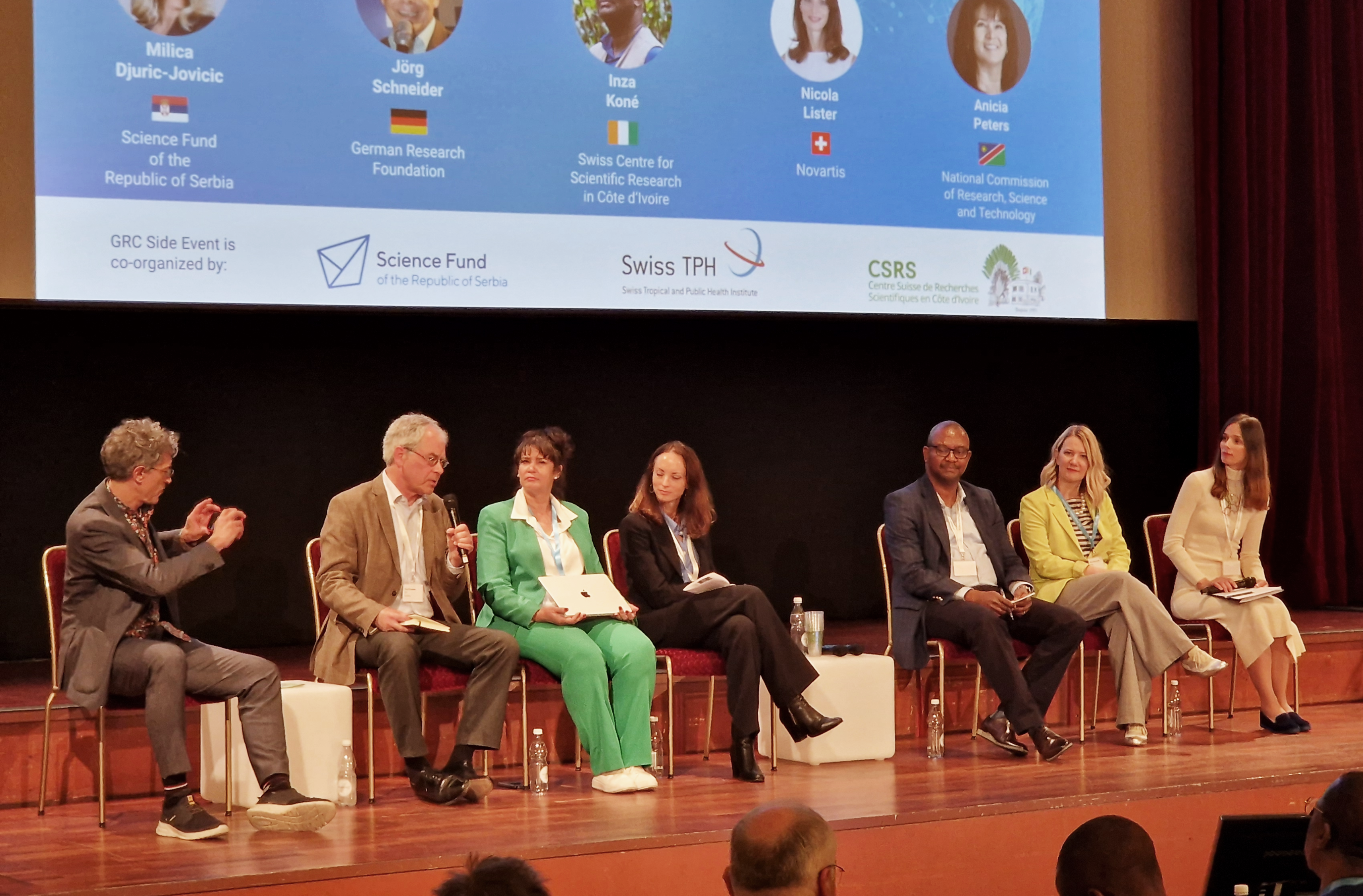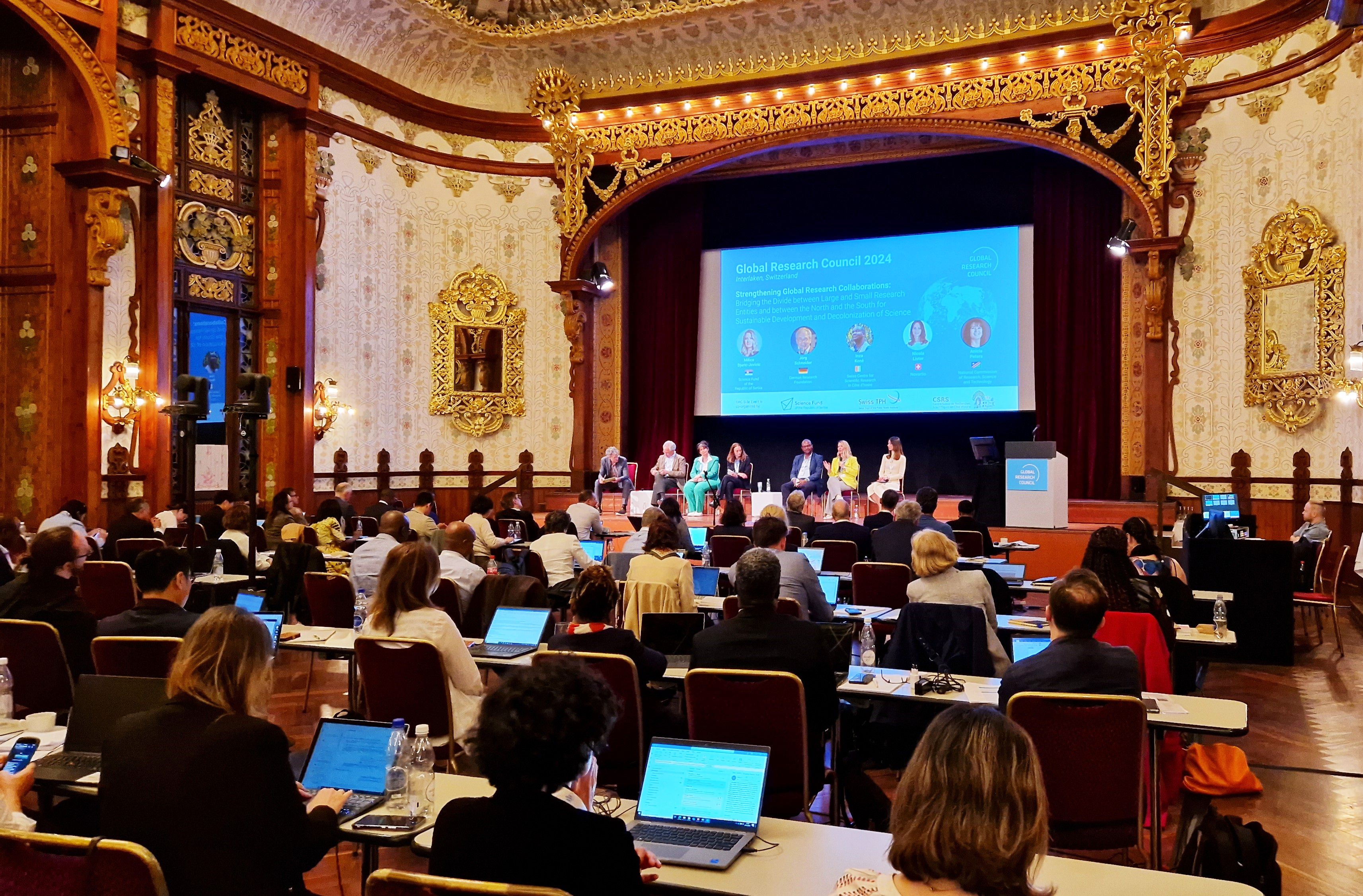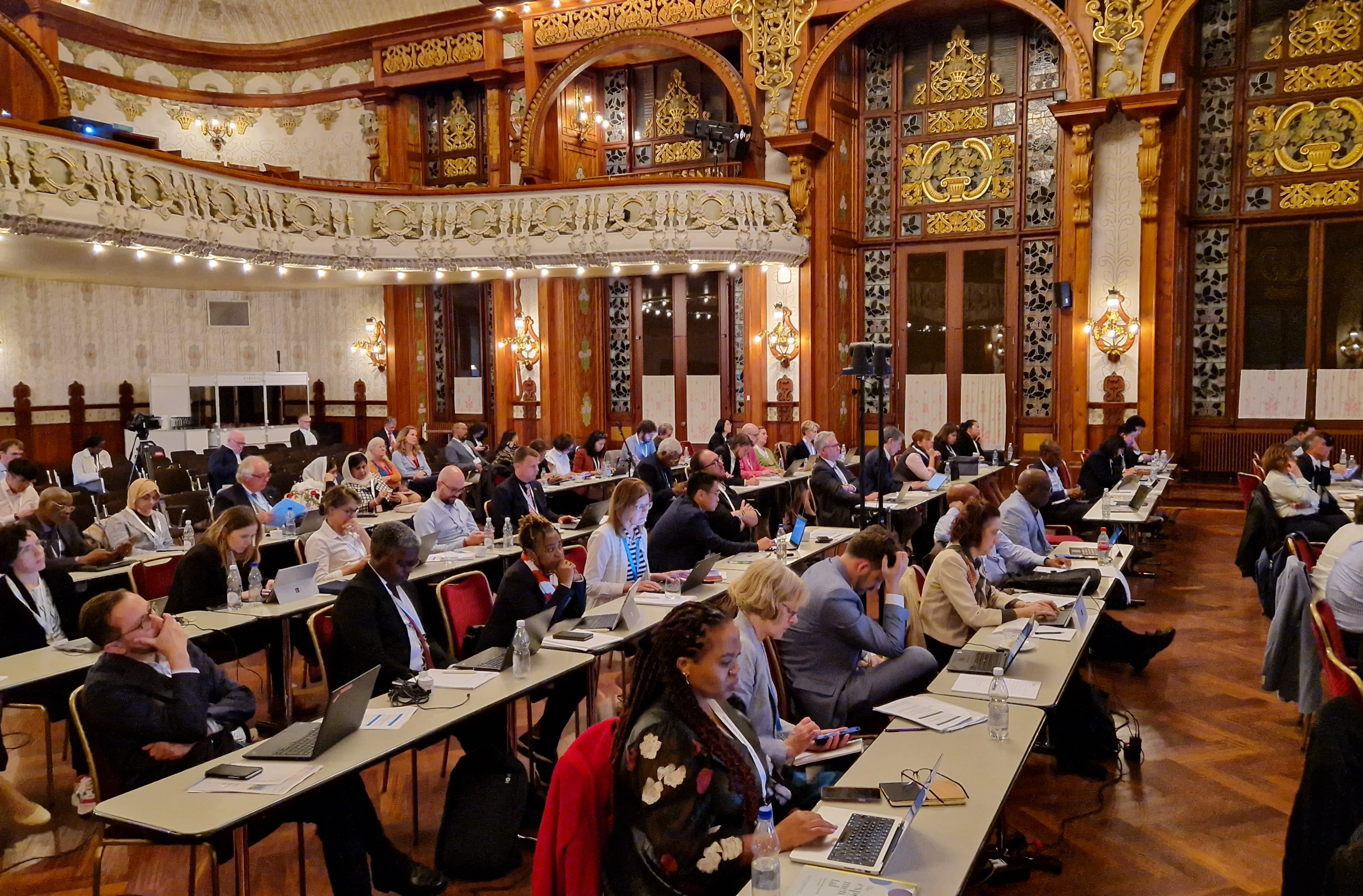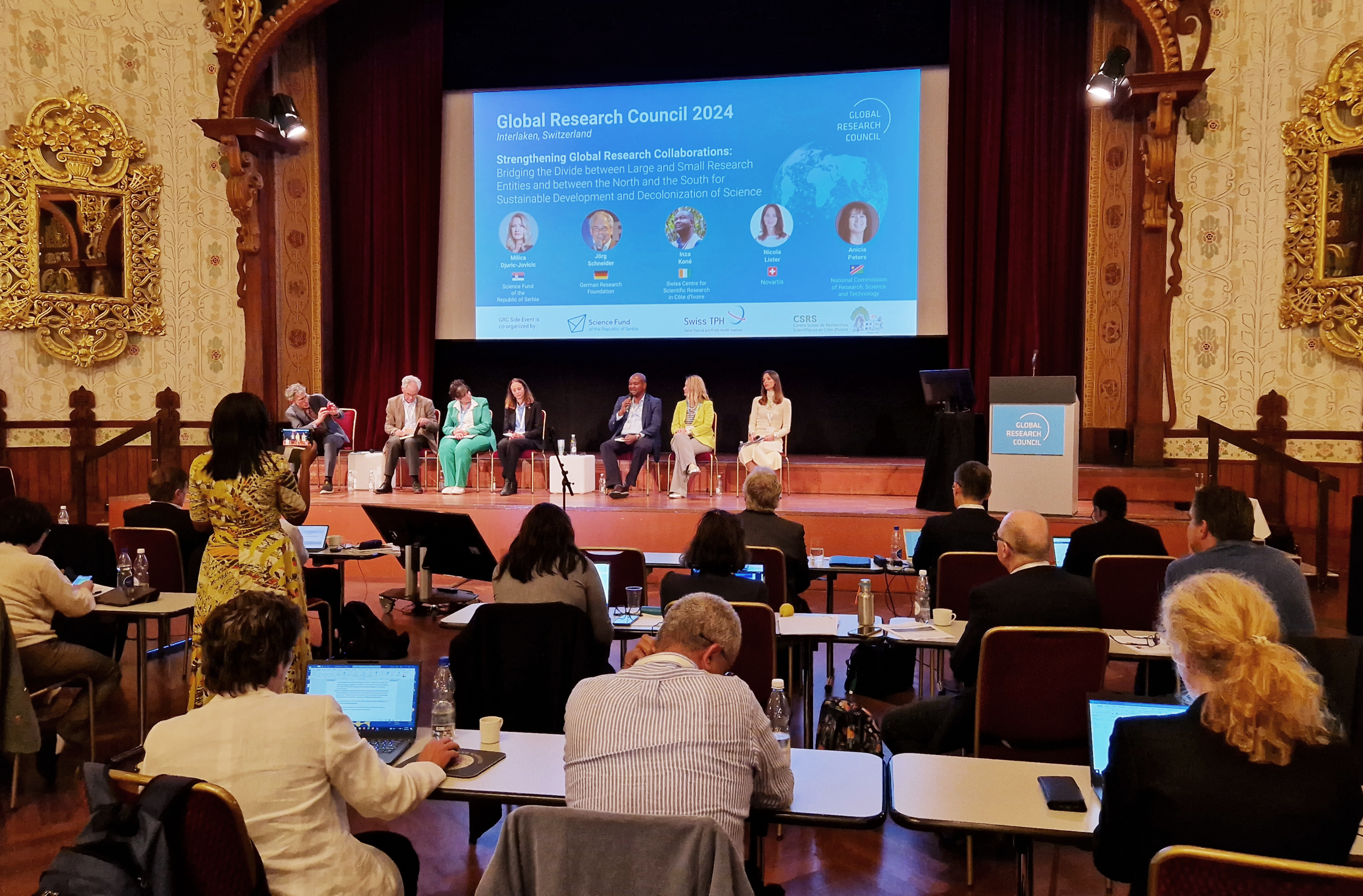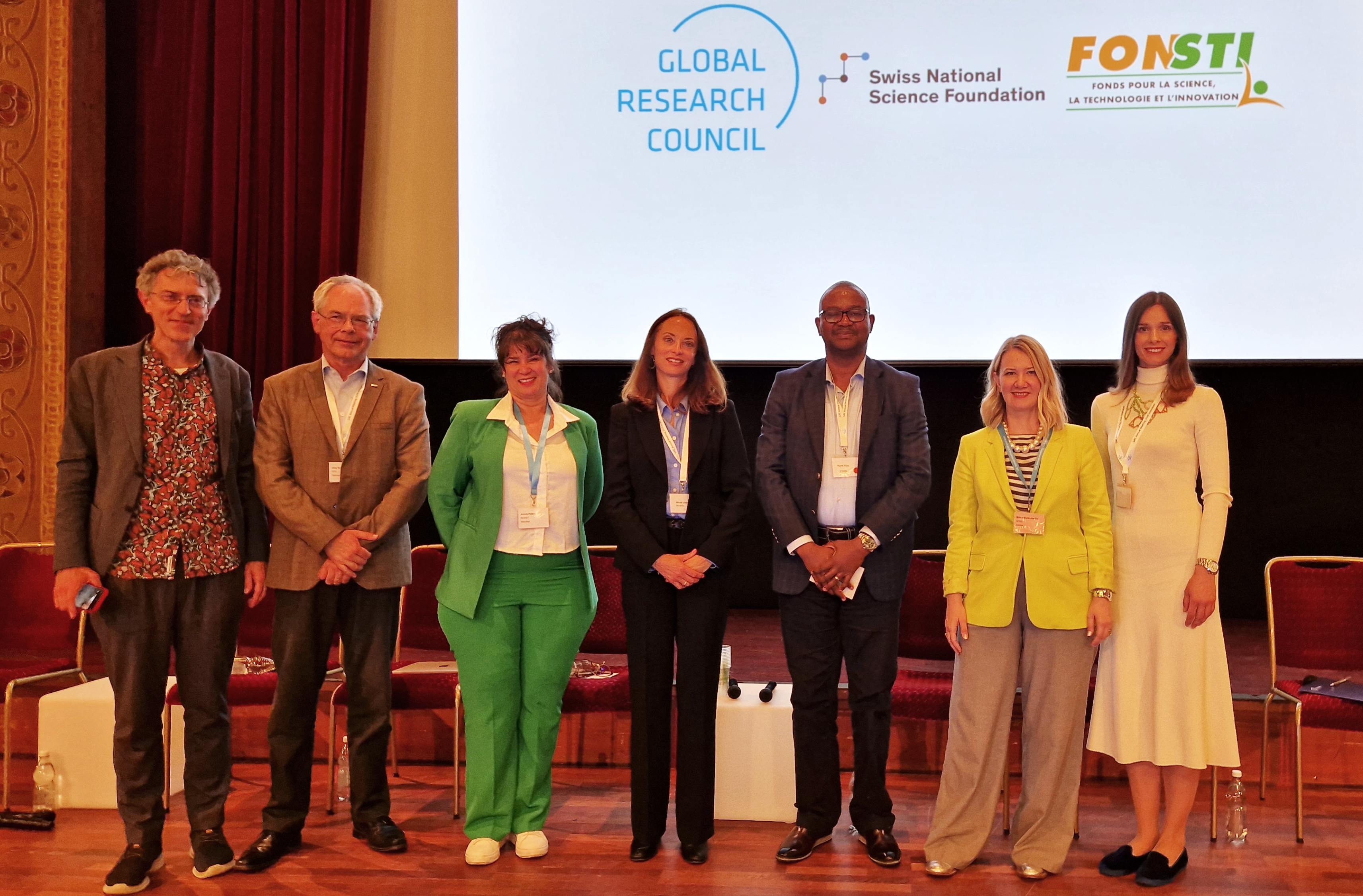Within the framework of the 2024 Annual Meeting of the Global Research Council held in Switzerland, the Science Fund of the Republic of Serbia co-organized side event dedicated to strengthening international cooperation between small and large research organizations, North and South, and sustainable development.
Event panellists shared positive experiences of regional and global collaboration.
Jörg Schneider, Head of International Affairs from German Research Foundation (Deutsche Forschungsgemeinschaft), pointed out that it is necessary to make efforts to establish international scientific collaboration. International collaboration is the way to achieve excellence that transcends the borders of a single country. Establishing collaboration implies providing financial resources, but also harmonizing procedures that are a condition for ensuring research excellence.
Dr Milica Djuric-Jovicic, Acting Director from Science Fund of the Republic of Serbia (SFRS), presented the development of the SFRS and the development of competitive research funding based on good practices from different countries. That process was followed by intensive collaboration and consultation with partner organizations from Europe, but also from other continents, which shared their experiences and different models for the development of institutional practice and procedures.
For the development of the Science Fund of the Republic of Serbia, it was particularly important to establish a system that will enable funding of scientific excellence, with independent and objective selection process, efficient monitoring of supported research projects, and establishment of collaboration and trust with the scientific community in Serbia. Learning from both “big” and “small”, SFRS developed fast and reached targeted international standards, launching 11 research funding programs and contributing to the development of science in Serbia.
Successful examples of collaboration between countries were presented by other panelists as well.
Inza Koné, Director-General from Swiss Centre of Scientific Research in Côte d’Ivoire (Centre Suisse de Recherches Scientifiques en Côte d’Ivoire), highlighted the significance of their collaboration with researchers from Switzerland and Germany. He emphasized the importance of infrastructure development as well as research mobility programs that enable the establishment of partnerships and collaborations on research projects.
Anicia Peters, Chief Executive Officer from National Commission of Research, Science and Technology in Namibia, stressed the importance of budget increase research and innovation in Namibia. As condition for participation in international collaboration programs is the provision of funds for co-financing the program, this is often a challenge to provide as a small country. However, she points out that many initiatives have already been established that imply continuous collaboration among African countries, but also collaboration between African countries and countries from other continents.
The panel also included examples of successful collaboration between industry and research, private and public sectors. Nicola Lister, Head Global Medical Affairs for Global Health & Sustainability from company Novartis, presented collaboration experiences through investment of Swiss private sector to research organizations in global South and African countries, particularly in the field of biomedicine and epidemiology. Such investments are focused on building the capacity of institutions and local communities where research is conducted, as well as establishing opportunities for the sustainability of established partnerships.
Panellists concluded that collaboration between “big” and “small”, developed and developing, global North and global South is necessary to achieve the conditions for funding scientific excellence worldwide, as well as to establish a global system that includes the principles of inclusivity, equality, and responsibility towards all researchers.
The panel was co-organized by the Science Fund of the Republic of Serbia, Swiss Tropical and Public Health Institute and Swiss Centre of Scientific Research in Côte d’Ivoire.




